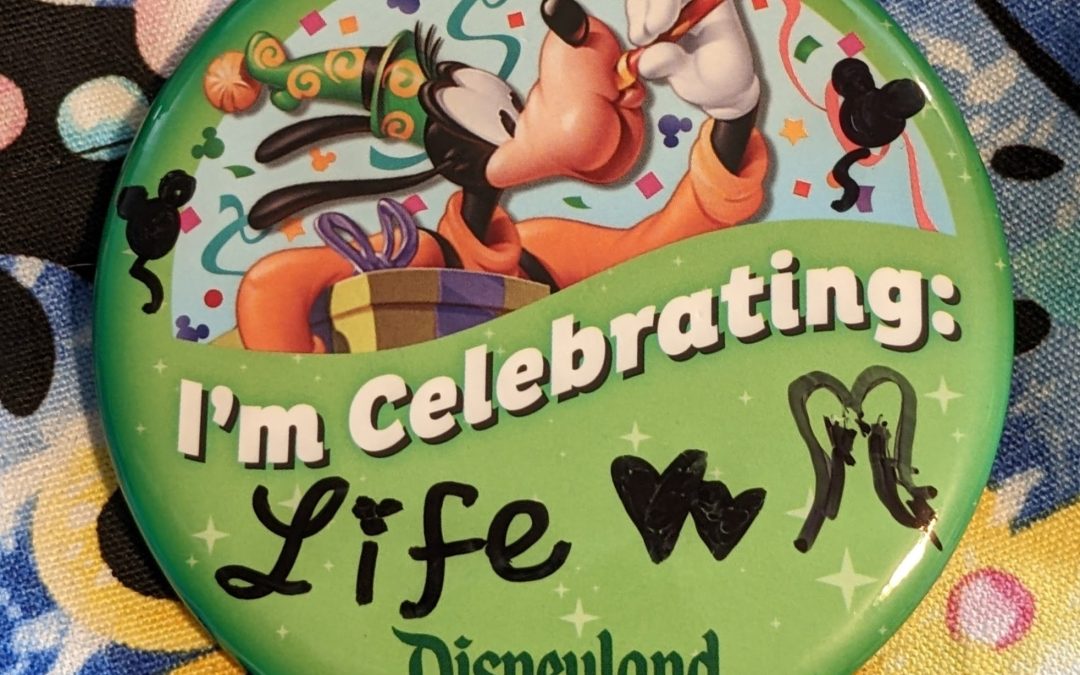Last Thursday, my husband of almost a quarter century dropped dead from one of those “widowmaker” heart attacks. It was a shock but could have been so much worse than it was; I may write later about being grateful for small blessings.
A lot of people have been checking in on me to see how I’m doing. The truth is that I’m doing fine. One of the reasons is because I’ve had a lot of practice holding Shawn in my heart. Between school, working summers out of state for his brother, and helping his mom (including two years caring for her, first after her car accident, then chemo), he’s already been physically absent a lot.
Another reason is because I don’t think grief is a problem. It just is. Part of me is fascinated by the different flavors of grief I’ve been experiencing. There’s the Somatic Grief that hits like a train, bringing me crashing to the floor and kicking me in the chest. (The mixed metaphor has me giggling at the visual of a train with legs, but you know what I mean.) Oddly enough, that’s the easiest type of grief for me to deal with because all I need do is surrender: let it flood me, let it flow through and out, leaving me feeling lighter and cleansed.
Then there’s Cognitive Grief. This is the one that isn’t really mourning the person so much as the hopes and plans and dreams for the future. In fact, the primary purpose of Cognitive Grief is to honor those dreams. Dreams matter. They’re important. They inspire and motivate us to fully live our lives. At the same time, not all dreams come true, and it’s not just death that kills them. Grief is a way to acknowledge that the future we had planned had meaning, even if it didn’t happen. It allows us to fold up the dream, mourn its dissolution, and tuck it into our chest so that we can create new dreams to follow.
If I were the only person affected by Shawn’s death, it would be easy to stay in bed all day, crying my eyes out over all the adventures we’d been planning to have together. But it’s not just me. I’ve got five 18-year olds (or on the cusp; last one’s birthday is in a few weeks) who have essentially just lost their father, and they are looking to me for guidance and support. I can’t afford to dwell on Could Have Beens.
The secret isn’t to shove it down. That way lies corruption as it gnaws away from the inside. Instead, it’s about acceptance and presence: be here, in this moment, now. The acceptance is one of those things that’s simple but not necessarily easy. I learned it from my eldest, who used it to pull themselves out of a downward spiral of guilt. When faced with the desire for things to be different, counter it directly by acknowledging that they aren’t.
I wish Shawn and I could have stayed at the Bonaventure like we’d scheduled for this Friday…
— but we won’t.
I wish Shawn could have finished putting the plastic cover on Sera’s bag so they could display their growing pin collection…
— but he didn’t.
I wish Shawn were still alive, living and breathing, giving his hugs and playing with us…
— but he’s not.
And now I’m crying again. So, yeah: simple but not easy.
After that counter, the second part of acceptance is: so now what? How do I navigate Life as it actually is?
This is where presence and mindfulness becomes crucial, because it grounds me in the here and now. Again, this is something that I’ve been working on for years. I didn’t just wake up and decide to be fine with my husband being dead, because dammit I miss him. I miss the way his eyebrows would wiggle when he was being silly. I miss him singing along with his favorite songs in the car, perfectly off-key. I miss the way we moved as a team when we’d come across an emergency: him checking to see if anyone needed medical attention, me redirecting traffic.
I miss him.
But as strongly as I feel these things, they’re just thoughts, memories and projections that don’t exist outside of my head. While they are valid and precious, I don’t want to live there.
So I go for my morning walks and look at the trees and the sky, listen to birds, and feel the sun on my skin. I hug my kids and really pay attention to them, how they’re feeling, the things they do and don’t say. I let the the kids and our friends support me — we all support each other. Sometimes we take turns breaking down, sometimes we break down together, holding each other close. I make sure everyone (including myself!) is staying hydrated. I take care of a couple of important tasks each day and give myself the compassion and grace to let the rest go. I feed the cats and clean their litter box and take pleasure in their play.
So, yes. I’m okay. We’re okay. Life is a constant weaving of joy and sorrow, each bringing its own richness to the tapestry. My husband’s contributions are threads so bright they run through the brocade like rivers of gold that will shine throughout our lives, and his memory is the greatest of blessings.
❤

